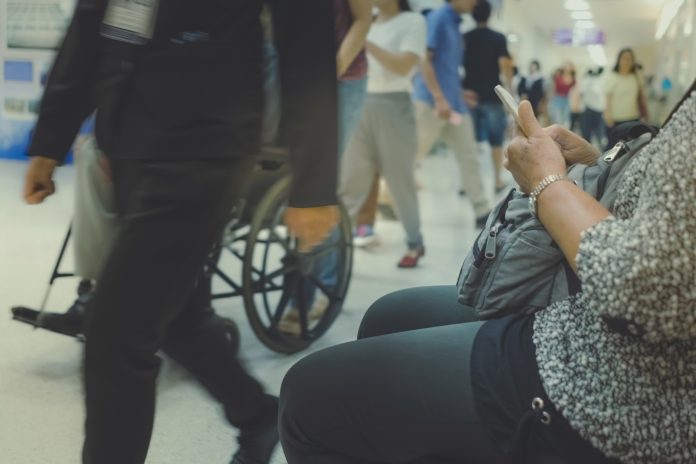Recent figures show that the number of people on England’s NHS waiting lists has jumped to a record 6.8 million – but could this decrease with volunteers?
With a growing staffing emergency and pressure only set to increase on NHS waiting lists as we head into winter, the NHS is under immense strain. These challenges are complex and require multiple solutions, but unlocking the power of volunteering is an essential part of the answer.
Understandably, the focus on waiting times mainly revolves around the physical impact of lengthy delays in diagnosis and clinical interventions. However, we must not overlook the impact of the waiting list crisis on the emotional well-being of patients and their loved ones, with those on NHS waiting lists for treatment potentially feeling isolated and forgotten.
Research shows that the emotional well-being of patients greatly impacts their chance of recovery, with loneliness increasing the likelihood of early death by 26%.
Emotional well-being is critical to physical recovery, whether in a hospital or at home
Patients who experience loneliness and social isolation are at greater risk of cognitive decline, with loneliness, in conjunction with living alone and poor social connections, as bad for health as smoking 15 cigarettes a day. Coupled with the fact that social isolation can be linked to a heightened risk of hospital admission, the impact of feeling isolated and even forgotten among NHS waiting list patients can be hugely damaging.
This is where volunteers can help – playing an invaluable role in providing compassionate, non-clinical support to patients. One example is the Waiting Well scheme, operated by around 22 NHS trusts across England.
The Waiting Well scheme
This scheme sees trained volunteers contacting patients on long-term NHS waiting lists to ensure they know they haven’t been forgotten and to provide updates, answer questions and share any information on the preparation needed before an upcoming hospital visit.
By providing this practical and emotional support to people on NHS waiting lists, volunteers can minimise anxiety and offer companionship to those concerned about their treatment. Waiting Well pilot projects across England are already helping to connect volunteers with patients to provide a range of services to make their wait more comfortable.
Volunteers can also provide specific support for people moving back into their own homes after receiving treatment from mental health services, helping them to feel more at ease and reassured.
NHS staff are struggling with staff shortages and long shifts
NHS staff are, of course, as compassionate as ever and are desperate to give comfort to patients in need, particularly to those who face lengthy stays in hospital or whose loved ones are unable to visit. But they often don’t have the time as they struggle with acute staff shortages and long shifts.
There are numerous ways in which trained volunteers can help by providing the non-clinical, emotional relief that patients and professional staff required. Our research shows that volunteers can speed up patient discharge by 44 minutes. NHS staff consistently tell us that they value the contribution of volunteers – with 71% of nurses saying that volunteer support helps them feel less stressed.
From local residents supporting elderly or vulnerable neighbours to thousands of volunteers supporting the vaccination programme, we have already seen the impact of volunteering throughout the pandemic.
But despite proven positive outcomes, volunteers are still an untapped resource across many health and care settings and roles. Volunteering is still undervalued or under-resourced in too many health and care settings. This has to change – and fast.
We must harness volunteer power to respond to the exceptional challenges we are facing. The momentum around volunteering is building, but there is so much more to do.
This piece was provided by Maeve Hully, Director of Volunteering at Helpforce. Helpforce is an independent, non-profit organisation that partners with health and care organisations across the UK to accelerate the impact of volunteering.











